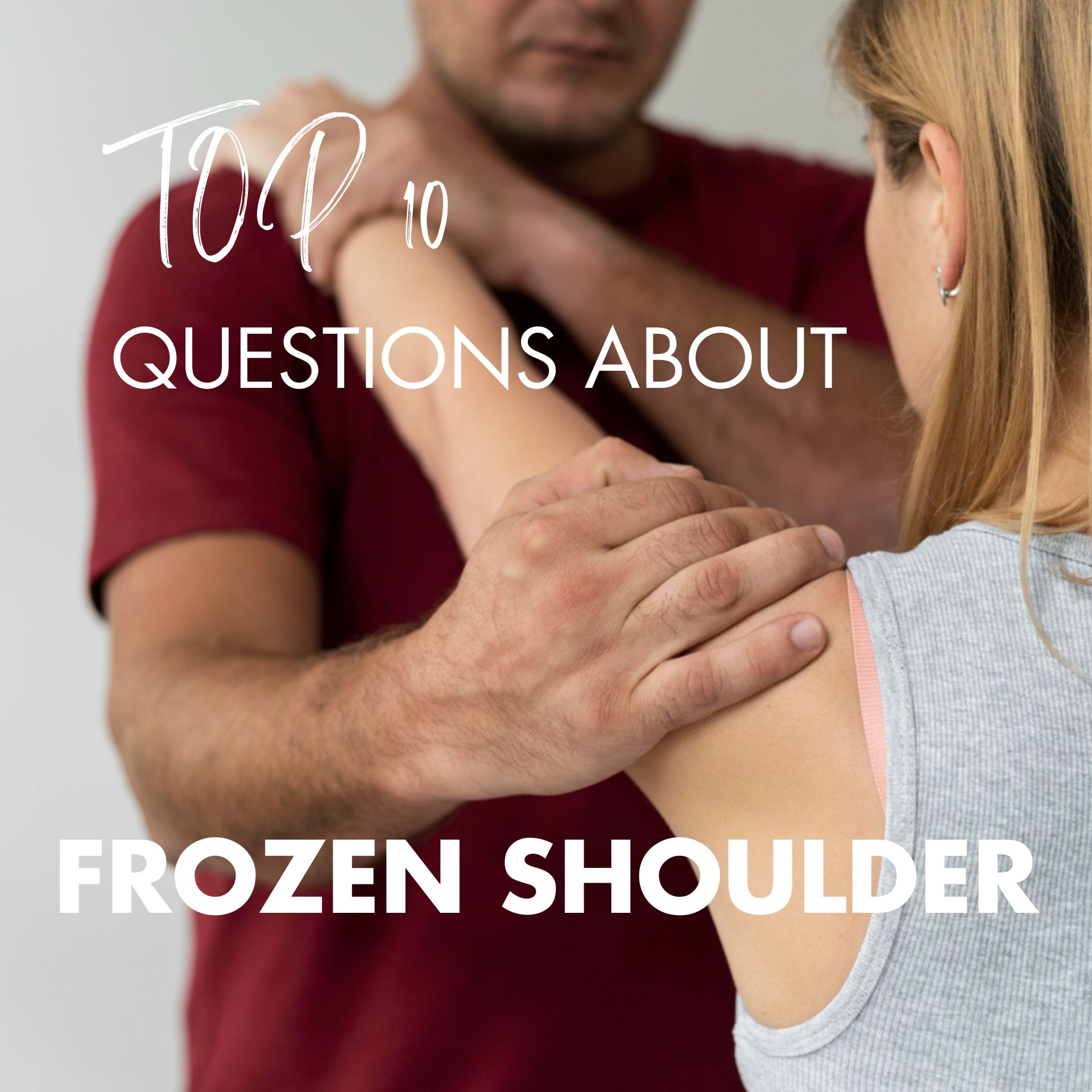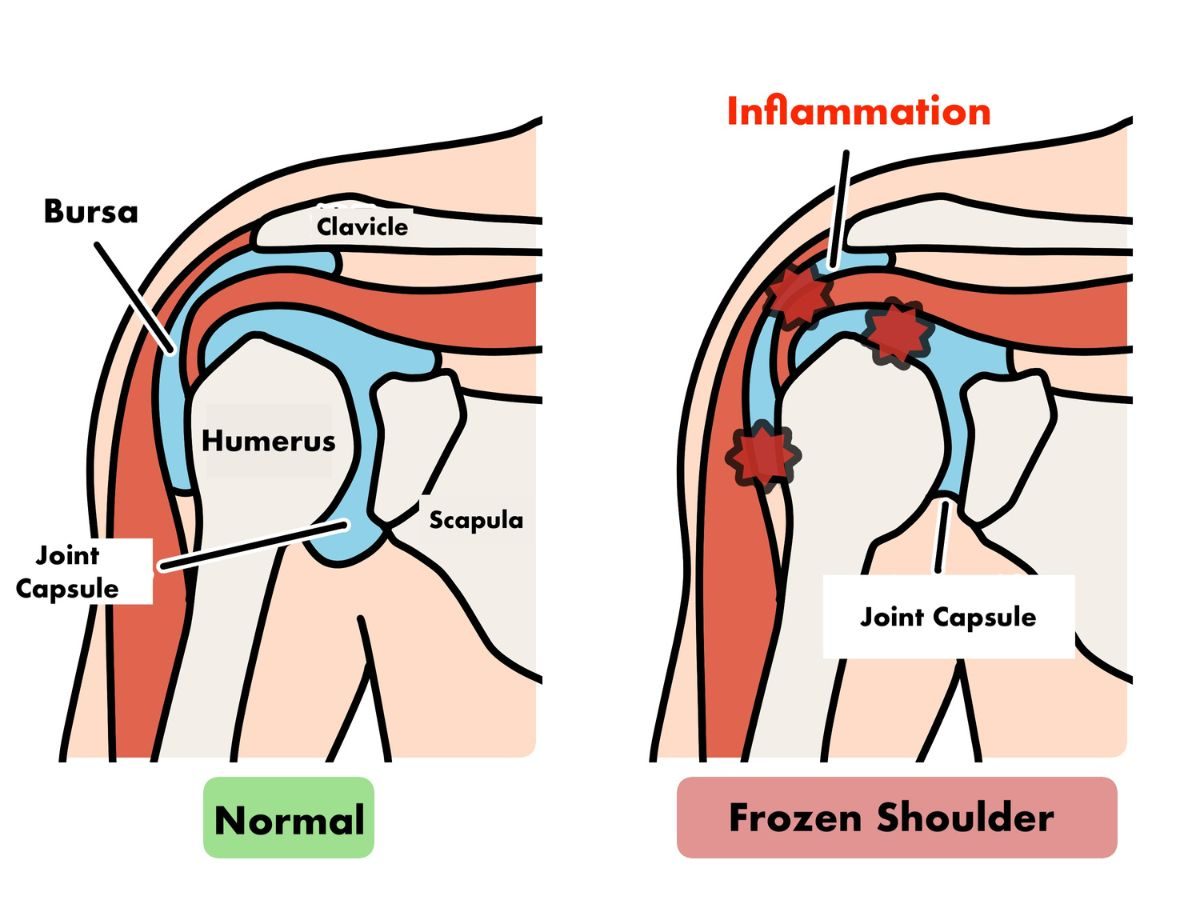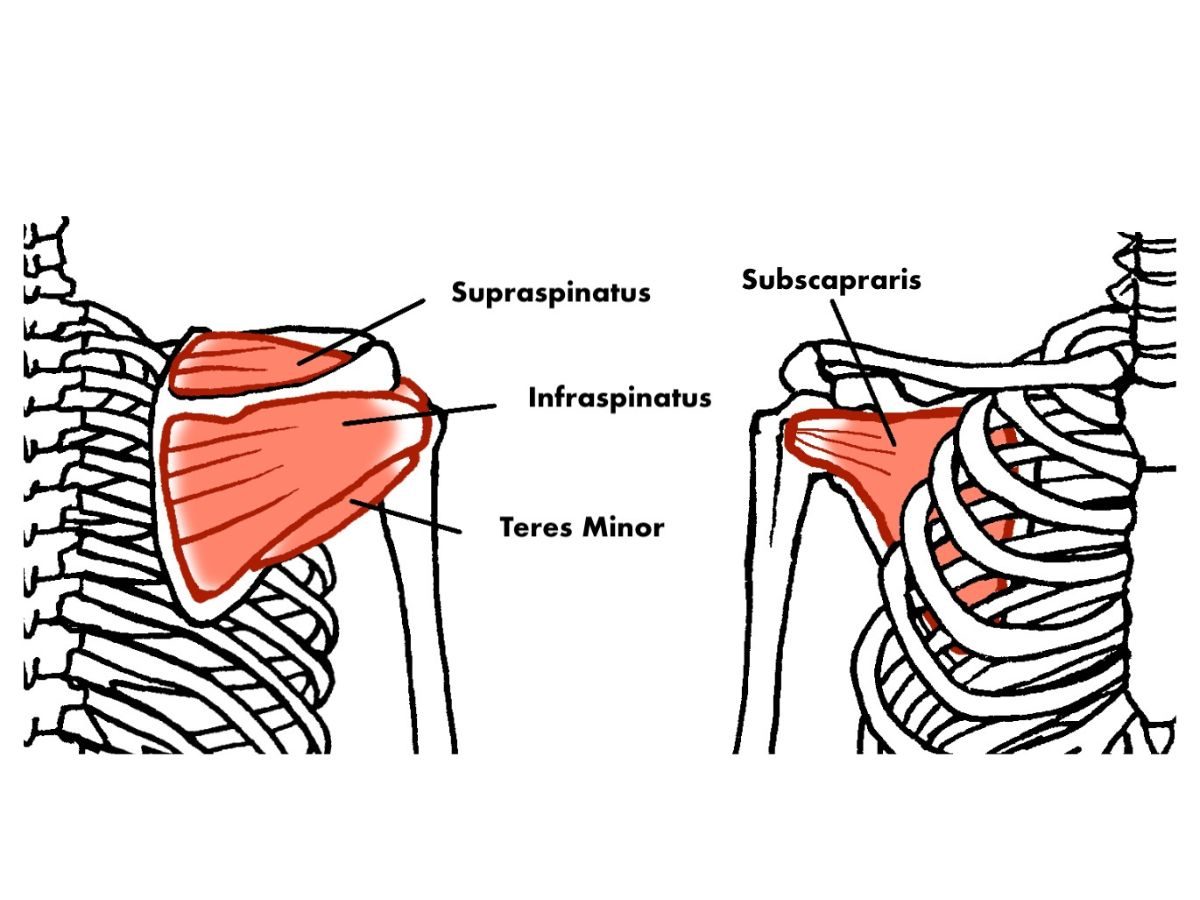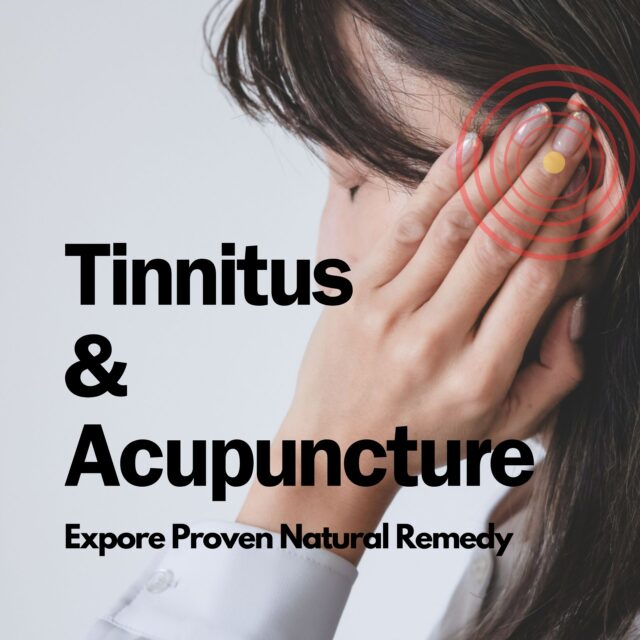I would like to share with you what you can do with 5 TIPS and how to manage one of...
Read MoreTOP 10 Questions about Frozen Shoulder

September 4, 2024
TOP 10 Questions about Frozen Shoulder
Hi, it’s Satoru from hariQ acupuncture & herbs. In this blog post, I want to address the top 10 questions I often hear from my patients about frozen shoulder. Frozen shoulder is a condition where the range of motion in your shoulder decreases, making it difficult to raise your arm to touch your head or back. Recovery and regaining shoulder mobility can take years. I hope these FAQs can help answer your concerns if you’re dealing with frozen shoulder.
We understand this can be a lot of information and overwhelming: if you are looking for more support and answers, set up a free consultation with our Frozen Shoulder Specialist, Satoru Ozawa. Share your story, get your questions answered, and learn how you can set yourself up for tremendous success in achieving a healthy life.
1. What is Frozen Shoulder?

Frozen shoulder, also known as adhesive capsulitis, is a condition characterized by stiffness and pain in the shoulder joint. It commonly occurs when the flexible tissue surrounding the shoulder joint becomes inflamed and thickened, leading to restricted movement and discomfort.
2. What Causes Frozen Shoulder?

We’re not exactly sure what causes frozen shoulder, but it might happen when the shoulder capsule thickens and tightens, which can limit movement and cause pain. Often, the muscles around the shoulder joint, especially the rotator cuffs, get all tensed up, making it hard to move the shoulder.
3. How do I know if I have Frozen Shoulder?
Frozen shoulder is characterized by stiffness and pain in the shoulder joint. Major Symptoms include:
- Gradual onset of pain
- Limited range of motion
- Difficulty sleeping on the affected side
- Pain that worsens at night
If you are experiencing these symptoms, it is advisable to consult a healthcare professional for an accurate diagnosis and appropriate treatment.
4. Does Frozen shoulder pain radiates down to the arm?
Yes, pain from frozen shoulder can radiate down to the arm. This is known as referred pain, and it can cause discomfort and limited movement in the arm in addition to the shoulder. The brachial plexus, which are nerve bundles that pass through the shoulder, are most likely affected by a frozen shoulder, causing pain to radiate down to the arm.
5. Who is at higher risk for Frozen Shoulder?
People at a higher risk for frozen shoulder include individuals who are between the ages of 40 and 60, those with a history of shoulder injury or surgery, people with certain medical conditions such as diabetes or thyroid disorders, and individuals who have experienced prolonged immobility of the shoulder due to conditions like stroke or recovery from surgery.
6. How long does it take to recover from Frozen shoulder?
The recovery process is different for each case, but in general, patients recover from frozen shoulders in several months, and sometimes, it takes up to three years to regain shoulder mobility.
There are 3 stages of Frozen shoulder progress: Freezing, Frozen, & Thawing.
7. How to Treat Frozen Shoulder?
Treatment for frozen shoulder typically involves a combination of strategies to help reduce pain and improve mobility. These may include: are physical therapy, pain management, steroid injections, shoulder manipulation, home exercises & acupuncture.
There are 5 tips for dealing with frozen shoulder at home, including massage, active-assisted exercises, stretch, heat therapy, and diet/supplement treatments. For more information, How to Deal with Frozen Shoulder (5 TIPS)
Massage For Frozen Shoulder By Yourself (9 Steps)
The 9 Steps of Massage technique that I created the other day is another modality that can improve pain, range of motion, and recovery by increasing blood flow and softening muscle tension. If you’re interested, I can also read my other blog post on How to massage for a frozen shoulder by yourself (9 Steps).
Pursuing Your Health is Our Passion
Call or Text 972-777-0836
We'll be happy to answer your questions.
8. Is Acupuncture Effective for Frozen Shoulder?
Yes. Acupuncture is very effective for frozen shoulder. We examined your shoulder and muscle tightness during the initial acupuncture session. You may be unable to bend forward or lean back due to pain. The treatments focused on reducing inflammation and swelling and restoring movement in the shoulder. Acupuncture has been shown in many studies to be incredibly practical in reducing pain and inflammation due to its ability to stimulate the body to release its natural painkillers. So, you start feeling relieved from the pain after each session.
9. When should I start Acupuncture?
As a general rule of thumb, the sooner one receives treatment, the better the prognosis. Some patients come for frozen shoulder treatment months or even years after the initial onset, and these chronic cases are often more complex and take a much longer time to achieve results. Even then, recovery is not guaranteed.
10. How Often Should I Schedule Acupuncture Sessions?
Regarding the frequency of treatments, Acupuncture follows a simple rule. Acute and relatively new conditions are most effectively treated with more frequent visits, whereas chronic and old conditions can benefit from more widespread treatments. In other words, if you just had an onset of frozen shoulder, you will probably be prescribed 2-3 treatments per week in order to get the most effective results, and chronic cases will generally come in only once a week.
If you or a loved one was diagnosed with frozen shoulder pain and want to learn more about acupuncture and whether it’s appropriate for your case, send us a message through our contact page. Thank you for taking the time to read this blog post! I appreciate your interest and hope to see you again for future posts.
We understand this can be a lot of information and overwhelming: if you are looking for more support and answers, set up a free consultation with our Frozen Shoulder Specialist, Satoru Ozawa. Share your story, get your questions answered, and learn how you can set yourself up for tremendous success in achieving a healthy life.
RECENT ARTICLES
These blogs are about natural remedies, acupuncture, Chinese medicine, Chinese herbs, and health tips.
Tinnitus & Acupuncture: Explore Proven Natural Remedy
A 45-year-old man came to my clinic looking for some relief from the ringing in ears because he discovered that...
Read More
Satoru Ozawa, L.Ac, ATC
hariQ acupuncture & herbs
Licensed acupuncturist, Certified Athletic Trainer and Chinese herbal specialist. With his 10 years of experience in Oriental Medicine, he will recommend the best natural Remedies, including Acupuncture, Chinese herbs, and health tips to relieve your suffering.



Any advise or exercises to help with Cubital Tunnel Syndrome?
If you’re dealing with cubital tunnel syndrome, a great way to help is by applying a heat pack to your inner elbow. It can really soothe that area! Also, don’t forget to try some gentle massage around the cubital tunnel itself. I’ve got a blog dedicated to tennis elbow, which is quite similar, so feel free to check out those massage exercises as well. https://hariqacupuncture.com/how-to-relieve-elbow-pain-with-acupressure-10-steps/